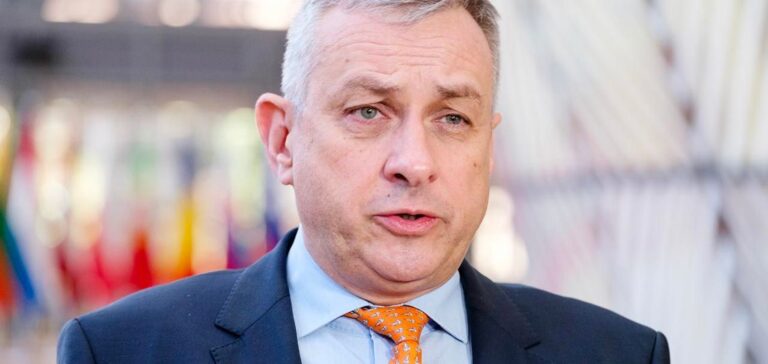EU energy ministers are expected to adopt several emergency measures on Friday to help households and businesses caught in the throat of soaring energy bills, but many believe that more needs to be done faster and further as winter approaches.
“We are in an energy war with Russia, winter is coming and we have to act now, that is today, maybe tomorrow, not in a week and certainly not in a month,” urged Czech Minister Jozef Sikela, whose country holds the presidency of the Council of the EU, arriving at the meeting in Brussels.
The recent leaks on the Nord Stream 1 and 2 gas pipelines in the Baltic Sea, denounced by the EU as acts of “sabotage”, have further heightened tension in the bloc, already shaken by soaring prices linked to the war unleashed by Russia in Ukraine.
The ministers of the 27 countries are expected to approve proposals presented in mid-September by the European Commission, aimed at recovering part of the “super-profits” of energy producers to redistribute them to consumers, and reduce the demand for electricity.
But a majority of member states – fifteen, including France, Belgium, Italy and Spain – believe that the “most serious problem” must be addressed: they are calling for a cap on wholesale gas prices on the European market.
These countries want the measure to apply to all gas imports, not just those from Russia.
“I expect the Commission to come up with additional measures as soon as possible on how to reduce the price of gas (…) The Commission must act quickly, there is no time to lose,” said Sikela.
The EU executive, like Germany, is reluctant to take such a step, fearing that limiting prices would threaten European supplies by dissuading “reliable partners” such as Norway or the United States from supplying the EU with gas, in favour of other destinations.
Estonian Minister Riina Sikkut also spoke out against the idea, saying that “gas availability and security of supply are more important than price.
In a preparatory document, the Commission proposed setting a maximum price for Russian gas – transported by pipeline or liquefied natural gas (LNG) – which currently accounts for 9% of European imports. The
Russia was historically the EU’s largest gas supplier, transporting more than 40% of the gas in the bloc.
“Conclude faster”
To bring prices down, Brussels is counting on negotiations with other suppliers of gas transported by pipeline, but believes that for LNG, the ability to negotiate is limited by international competition. The Commission is also considering a cap on the price of gas used for power generation.
These options will be discussed by the ministers, and should result in a more detailed plan, before a summit of EU leaders on October 7 in Prague and a new meeting of energy ministers on October 11-12.
“We must go further on these issues and we must conclude more quickly,” said French Minister Agnès Pannier-Runacher. “This is a process that we want to accelerate, it’s a topic that is shared by my counterparts.”
In the meantime, the ministers must endorse a regulation aimed at capping the revenues of nuclear and renewable electricity producers (wind, solar, hydro) who make windfall profits by selling their production at a price far above their production costs.
The ceiling would be set at 180 euros per megawatt-hour and the difference with the wholesale market price would be recovered by the states to be redistributed to households and businesses. A “temporary solidarity contribution” is also planned for producers and distributors of gas, coal and oil.
According to Commission President Ursula von der Leyen, this could result in a total of about 140 billion euros in revenue.
The bill also sets a binding target for states to reduce their electricity consumption “by at least 5%” during peak hours. The EU-27 are also called upon to reduce their monthly electricity consumption by 10%, an indicative target.
Many EU countries have already put in place national support schemes to relieve households and businesses strangled by bills. Like France, which applies caps to energy prices, Germany announced on Thursday that it would release up to 200 billion euros more to limit gas and electricity prices.





















